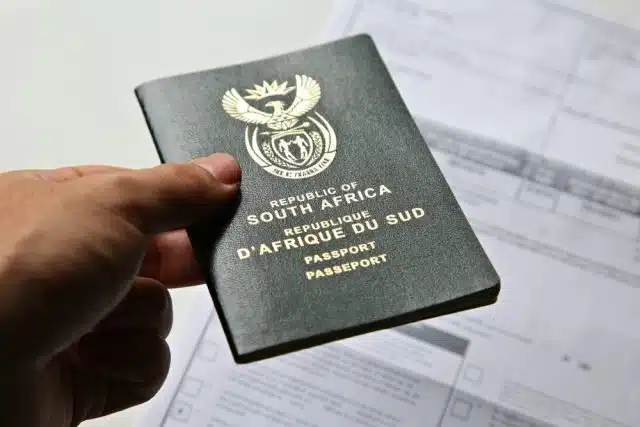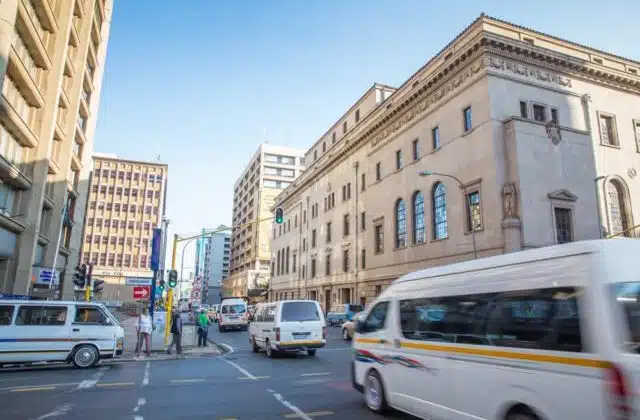
How criminals make a mockery of passport security in South Africa
The Department of Home Affairs has outlined how passport fraud is being conducted by criminals in South Africa, leading to new measures being put in place to secure the country’s processes.
Home Affairs minister Aaron Motsoaledi recently announced that the flexibility afforded to passport applications and collections in South Africa is being removed to protect the integrity of the document following several high-profile cases of corruption involving passports in recent weeks.
“South Africa’s passport has been in the news for all the wrong reasons,” Motsoaledi said, highlighting incidents where department officials were arrested for fraudulently processing illegal immigrants and where Bangladeshi and Pakistani citizens were caught using false South African passports abroad.
While some instances have become a local joke, Motsoaledi said that these cases cause serious hardships, mentioning the RyanAir saga, which saw locals ostracised in the UK because there is simply no trust in the country’s passport.
How criminals are doing it
In March 2022, the department arrested several Pakistani and Somalian citizens, together with an equal number of South African citizens, who were involved in passport fraud.
They were arrested with a Pakistani kingpin who Motsoaledi described as “the master of passport fraud” in that area. Later on, some corrupt Home Affairs officials who were facilitating this fraud were also arrested.
In a written parliamentary Q&A this week, Motsoaledi outlined exactly how the fraud took place:
The kingpin recruited young South Africans “who are unlikely to travel overseas” and recruited a similar number of foreign nationals who wanted to acquire a South African passport.
They visited a Home Affairs office during the night, where the South Africans filled out a regular application for a passport, entering their names, date of birth and ID numbers. After appending their fingerprints on the form, they were pushed aside at the photo booth, and the photo was taken of the foreign national.
“Hence the names and fingerprints belong to a South African, but the photo belongs to a foreign national,” Motsoaledi said. “Remember that at ports of entry throughout the whole world, they check our photo and your face. Hence they easily go through airports, seaports and lane ports all over the world.”
The minister said that this process and method were followed in other cases, ending up with “Lebogang Ndlovu from Bangladesh”, which became a local joke.
The consequences
Because of the cases involving citizens from Bangladesh and Pakistan trying to pass through South Africa’s airports illegally, the department said it is withdrawing the transit visa exemption for Bangladesh and Pakistan from 1 August 2022.
Travellers from these countries are now required to apply for a visa when transiting through South Africa.
Locally, however, South Africans will also see certain privileges revoked.
The minister announced the first of three major actions being taken to protect the security of the South African passport – the end of transferrable and third-party collections and a new activation process that can only be completed by the applicant.
Passport applications previously allowed for the document to be collected at any office in the country if applicants requested that it be transferred. It also allowed for the passport to be collected by a third party.
After the changes, however:
- A passport can only be collected from the office it was applied for. You will be forced to go back to the same office to collect it.
- Only the person who applied for the passport can collect it.
- Passports will be activated by a fingerprint – which will be compared to a photo. Upon collection, everything has to be matched up to the data in the national identity database.
- For minors, only parents or legal guardians can apply and collect these, using the same methods.
Motsoaledi said that this new process is the same method being used in Smart ID cards. He stressed that any passports collected in any other way will be of no use, as they will not be activated.
The other two changes to protect passport security will be discussed in due course, the minister said – but he stressed that one of the measures is “an internal process” which will be kept under wraps to prevent fraudsters from taking advantage of it.
The third measure is a technological one, which will be revealed once it has gone through the necessary processes.
Read: New bank branches for smart ID and passports in South Africa hit a roadblock



